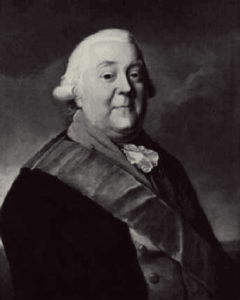Andebit et beaqui corendit, ut quostes esciendion re dit ad et prae parion es quia quas alibus sam, omnim faciden ducipidiat arum autem nobis enis es voat

Introduction to the Germans in the American Revolution by Max Von Eelking

An excerpt from William Leete Stone’s Memoirs and Letters and Journals of Major General Riedesel during his Residence in America, Translated from the original German from Max von Eelking’s Memoirs. pg. 21:
It must not be overlooked that Prince Carl was forced to participate in the war. The heir to the throne of Brunswick says confidentially in a letter before the breaking out of the America war: The landgrave will very likely, in spite of Eichfeld, furnish all or part of his troops. Otherwise he might get into difficult with both sides; for he is not strong enough to remain neutral, as his funds would soon be seized, and the lack of everything would soon be felt. It was believed at that time, that the difficulties between England and America would be fought out, not only in the colonies, but in Europe, and particularly in Germany.
The landgrave was thus forced to take sides with one of the parties. He accordingly entered into an agreement with England, or rather an offensive and defensive alliance. England needed troops; the German states needed money; it was therefore natural that they should mutually aid each other. England had already been an ally of Hessia and Brunswick during the Seven Years’ War; and in the case of another war breaking out – an event which was thought extremely probably – that union would have to be renewed.
According to the treaty, the Duke Charles agreed to furnish an infantry corps of 3.064 men, and 336 of light cavalry. It was specially agreed in Article II, that “His majesty of Great Britain, not deeming it advisable that his corps should be mounted, the same shall serve as a corps of infantry. But should the service demand that they should be mounted, then his majesty agrees to do it at his own expense.”
On the disbanding of his regiment in 1767, Riedesel was appointed adjutant general of the Brunswick army. His advancement was rapid. In 1772, he was named colonel of carbineers, which was subsequently formed into a regiment of Dragoons. Germany was to take into Britain’s service upwards of twenty thousand German troops, of which nearly four thousand were from Brunswick. On January 10, 1776, Colonel Riedesel, who had been appointed commander of the auxiliary troops of Brunswick, received his commission as Major General and instructions.







